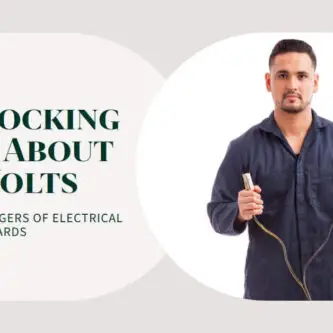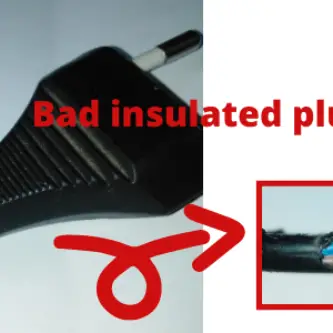If you’re a homeowner, you may have heard the term “circuit breaker” before. A circuit breaker is an important safety feature in a house’s electrical system, designed to protect against electrical overload and fires.
But what happens if you don’t have a circuit breaker in your house? without a circuit breaker, there is an increased risk of electrical fires, overloaded circuits, damage to appliances and electronics, and electrical shocks.
In this article, we’ll explore the risks and consequences of not having a circuit breaker installed.
What is a Circuit Breaker?
First, let’s define what a circuit breaker is. A circuit breaker is an electrical switch designed to protect an electrical circuit from damage caused by an overload or short circuit.
It works by automatically shutting off the power to the circuit when it detects an electrical fault or overload. This helps prevent damage to the circuit and reduces the risk of electrical fires.
A circuit breaker typically consists of three components: the switch, the trip mechanism, and the sensing element.
The switch controls the flow of electricity in the circuit, the trip mechanism detects an overload or short circuit, and the sensing element detects changes in temperature or current.
How Circuit Breakers Work
When the circuit breaker detects an overload or short circuit, the trip mechanism activates and the switch is turned off, cutting off the power to the circuit.
This protects the circuit from damage and prevents the risk of electrical fires. Once the fault is cleared, the circuit breaker can be reset and power can be restored to the circuit.
What Happens If You Don’t Have a Circuit Breaker?
Without a circuit breaker installed, your home is at a higher risk for electrical fires, overloaded circuits, and damage to appliances and electronics.
Here are some of the consequences of not having a circuit breaker:
Increased Risk of Electrical Fires
One of the primary functions of a circuit breaker is to prevent electrical fires.
Electrical fires can be caused by overloading circuits, short circuits, or damaged wiring. Without a circuit breaker, these issues can go undetected and lead to a fire.
Overloaded Circuits
Another consequence of not having a circuit breaker is the risk of overloaded circuits.
Overloaded circuits occur when too much electricity is flowing through the wires, which can cause overheating and damage to the circuit.
This can lead to power outages, damaged appliances, and even electrical fires.
Damage to Appliances and Electronics
Without a circuit breaker, electrical surges can occur that can damage appliances and electronics.
Electrical surges can be caused by lightning strikes, power outages, and other factors. A circuit breaker helps regulate the flow of electricity and protects appliances and electronics from damage.
Electrical Shocks
Without a circuit breaker, there is an increased risk of electrical shocks. Electrical shocks can occur when a person comes into contact with live electrical wires or appliances.
A circuit breaker helps prevent electrical shocks by shutting off the power to the circuit in the event of an overload or short circuit.
Why Some Houses Don’t Have Circuit Breakers
Some older homes may not have circuit breakers installed due to outdated wiring systems. In these cases, it may be necessary to upgrade the electrical system and install circuit breakers to ensure the safety of the home.
Additionally, some homeowners may attempt DIY renovations or electrical work without realizing the importance of circuit breakers, which can put the home at risk.
Signs That You Need a Circuit Breaker Installed
If you’re unsure whether your home has a circuit breaker installed, there are a few signs to look out for.
If your fuses frequently trip, your lights flicker, or you hear buzzing or humming sounds coming from your electrical system, it may be a sign that you need a circuit breaker installed.
Burning smells or smoke is also a serious sign that there may be a problem with your electrical system and you should immediately contact an electrician to check your system.
Conclusion
In conclusion, having a circuit breaker installed is crucial for the safety of your home and family.
Without a circuit breaker, there is an increased risk of electrical fires, overloaded circuits, damage to appliances and electronics, and electrical shocks.
If your home does not have a circuit breaker, it’s important to have one installed by a professional electrician.
Regular maintenance and inspections of your electrical system can also help prevent issues and ensure that your circuit breaker is functioning properly.
Remember to never attempt electrical work or repairs on your own, and always contact a licensed electrician for any electrical issues.



